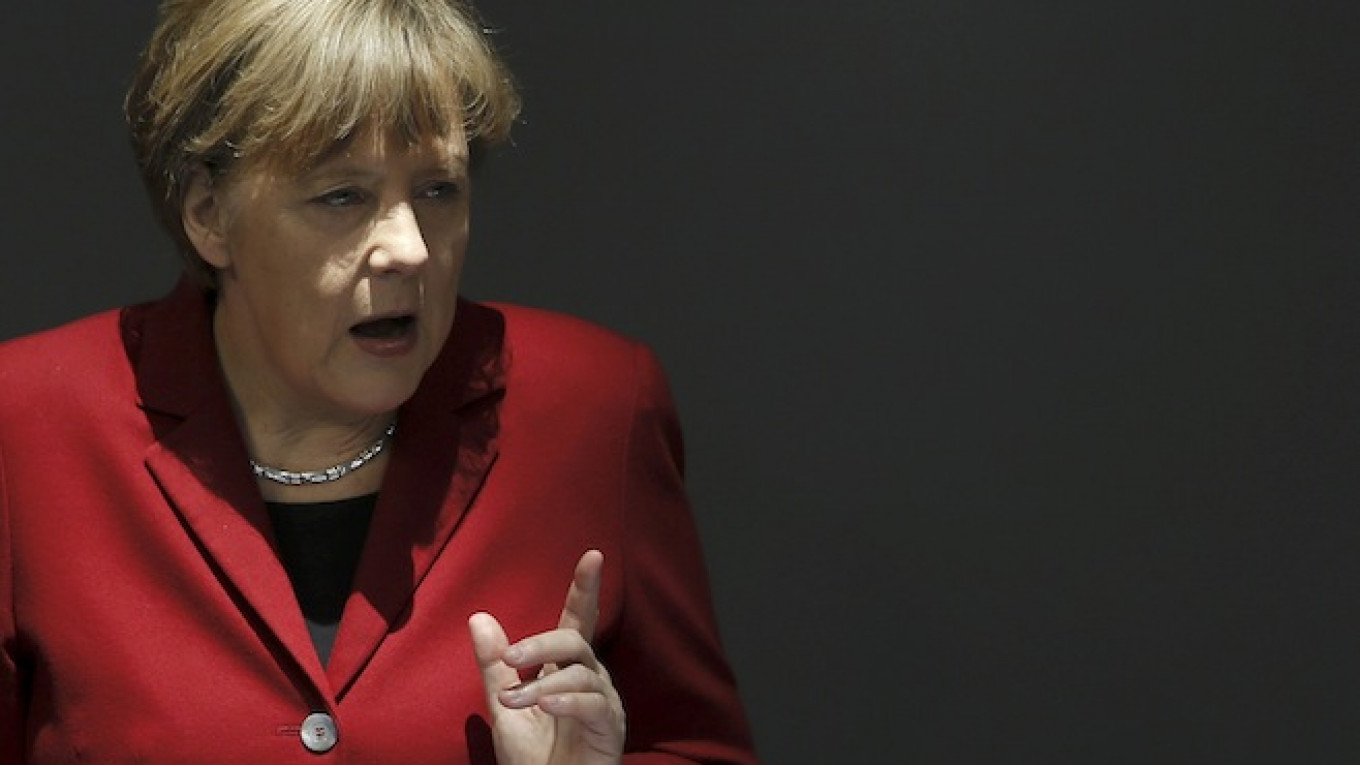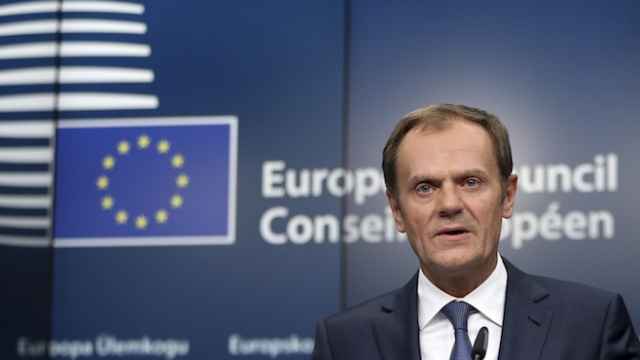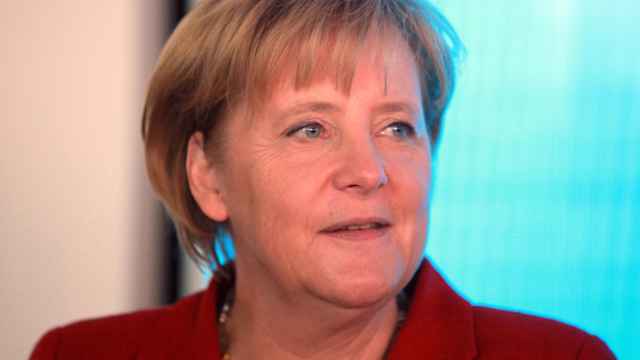European Union leaders look likely to keep economic sanctions on Russia in place until a Ukraine cease-fire deal is fully working, after German Chancellor Angela Merkel said on Thursday that it would be wrong to ease pressure on Moscow prematurely.
EU governments have until now been divided on whether to act now to renew those sanctions, which expire in July.
Merkel's comments suggest Germany will strongly encourage leaders meeting at a Brussels summit later on Thursday to commit Europe to maintaining sanctions until Russia meets the terms of the deal it struck last month with Kiev to lay down arms.
"We cannot and will not lift the sanctions that expire in July or September until the demands of the Minsk agreement have been fulfilled. That would be wrong," Merkel told Germany's Bundestag lower house of parliament on Thursday.
The Minsk agreement, which set out a series of steps to defuse the Ukraine crisis including a cease-fire and withdrawal of heavy weapons, came under renewed strain on Wednesday, with Ukraine and Russia clashing publicly over the next steps and further Ukrainian military casualties from rebel attacks.
EU countries vary widely in their enthusiasm for sanctions on Russia, the bloc's leading energy supplier. While some governments want to send a tough signal to Moscow by renewing the July sanctions now, others say the cease-fire should be given a chance to work and want to wait until June to take a decision.
European Council President Donald Tusk urged EU leaders on Thursday to keep up pressure on Russia until Minsk is fully implemented.
"This must ultimately conclude in Ukraine regaining control of its borders as foreseen in the (Minsk) plan," he told a news conference before the summit.
Tusk, Merkel and French President Francois Hollande have drawn up a compromise deal linking sanctions to full implementation of Minsk.
That would effectively extend sanctions at least until the end of the year, because the Minsk accord contains a year-end deadline for Ukraine to recover full control over its border.
However, a formal decision on renewing the July sanctions on Russia's energy, finance and defence sectors would not be taken until the next summit in June.
Merkel spoke by phone to U.S. President Barack Obama on Wednesday and they also agreed there would be no easing of sanctions until Russia had fulfilled all of its commitments under Minsk, the White House said.
EU officials have said they think the compromise is capable of winning unanimous support despite divisions among EU leaders.
"There's wide consensus within the EU that the future of sanctions is strongly tied to the implementation of the Minsk treaty," Finnish Prime Minister Alexander Stubb told reporters in Helsinki Wednesday.
Ukrainian Prime Minister Arseniy Yatsenyuk said EU leaders should discuss renewing existing sanctions or scaling up sanctions if Russia failed to implement the Minsk deal, but he rejected any talk of easing the measures.
"If (Russian President Vladimir) Putin splits the unity ... among the leaders of the EU member countries this will be the biggest success story of President Putin and this will be a disaster for the free world," he told reporters in Brussels after a pre-summit meeting with Tusk on Thursday.
Yatsenyuk said the EU had not yet responded to Ukraine's request for UN peacekeepers or an EU police mission to monitor the cease-fire.
"We expect that our European friends will support this idea," he said.
A Message from The Moscow Times:
Dear readers,
We are facing unprecedented challenges. Russia's Prosecutor General's Office has designated The Moscow Times as an "undesirable" organization, criminalizing our work and putting our staff at risk of prosecution. This follows our earlier unjust labeling as a "foreign agent."
These actions are direct attempts to silence independent journalism in Russia. The authorities claim our work "discredits the decisions of the Russian leadership." We see things differently: we strive to provide accurate, unbiased reporting on Russia.
We, the journalists of The Moscow Times, refuse to be silenced. But to continue our work, we need your help.
Your support, no matter how small, makes a world of difference. If you can, please support us monthly starting from just $2. It's quick to set up, and every contribution makes a significant impact.
By supporting The Moscow Times, you're defending open, independent journalism in the face of repression. Thank you for standing with us.
Remind me later.






